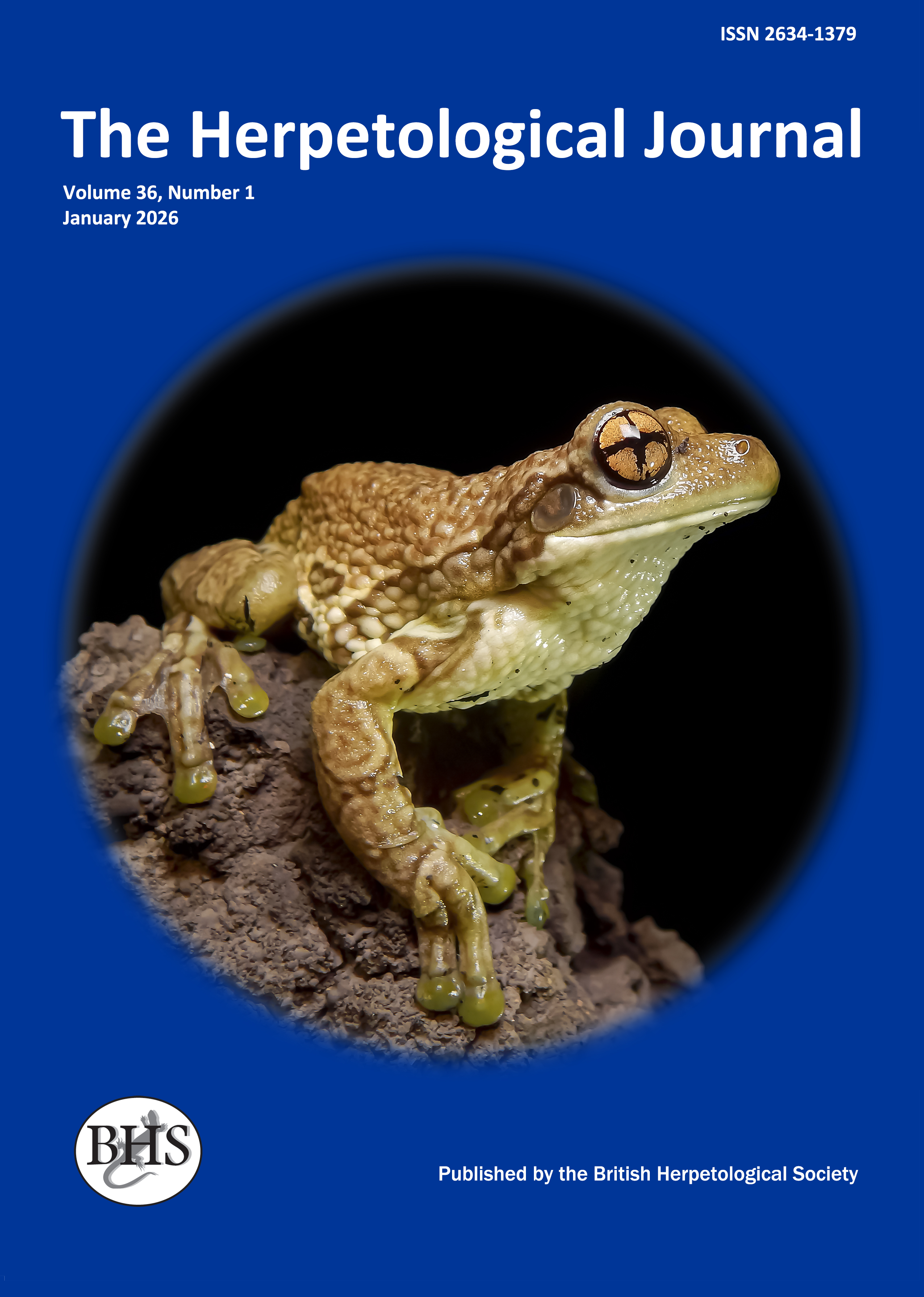
The Herpetological Journal
The Herpetological Journal is the Society's prestigious quarterly scientific journal. Articles are listed in Biological Abstracts, Current Awareness in Biological Sciences,Current Contents, Science Citation Index, and Zoological Record.
ISSN 0268-0130
2023 Impact Factor for the Herpetological Journal is 1.1, with the Journal sitting just below Quartile 2 in Zoology, at percentile 46.9
pdf 04. Over-exploitation and illegal trade of reptiles in Indonesia
2630 downloads
Open Access
pp. 83-89
Authors: Nijman, Vincent; Shepherd, Chris R.; Mumpuni & Sanders, Kate L.
Abstract: We report on the commercial trade in three reptile species harvested for different purposes in western Indonesia (Sumatra, Java, Kalimantan) for international markets: (1) Tokay geckos, Gekko gecko, traded for medicinal uses, (2) Javan filesnakes, Acrochordus javanicus, harvested for skins, and (3) Asiatic softshell turtles, Amyda cartilaginea, harvested for meat; each species is also exploited for the pet trade, but to a lesser extent. All three species are harvested from wild populations. None of these species are protected by Indonesian law, but there is a national harvest and export quota system in place to prevent overexploitation. For each species, we collected data from catchers, middlemen and exporters on harvest volumes, catching locales, turn-over and prices, and compared these figures with the quota allocated by the Indonesian authorities. The trade in G. gecko from Central and East Java (3 traders, 2006) amounts to around 1.2 million individuals annually, greatly exceeding the national quota of 50,000 G. gecko for the entire year and representing a monetary value for exporters of around one million USD / year. The annual trade in A. javanicus (in five cities in East and South Kalimantan, and North Sumatra, Riau (central Sumatra) and South Sumatra, 2005–6) was estimated at around 300,000 individuals from Kalimantan and 30,000 from Sumatra, exceeding the national quota of 200,000 individuals / year and representing a monetary value for exporters of at least three million USD / year. The trade in A. cartilaginea was monitored in three cities in North Sumatra and Riau in 1999: 200– 450,000 individuals were traded in 1998 and 1999, greatly exceeding the national quota of 10,000, with a monetary value for exporters in excess of ten million USD / year. We conclude that implementation of wildlife trade regulations by and large are not abided by many reptile traders and are not sufficiently enforced by the Indonesian authorities. We further note that the quota-setting process rarely involves non-detriment findings based on reliable biological information. In order for reptile trade to be sustainable in Indonesia, it is paramount that non-detriment findings are undertaken and existing regulations are sufficiently enforced.
Keywords: CITES, BIODIVERSITY CONSERVATION, LAW ENFORCEMENT, WILDLIFE TRADE

